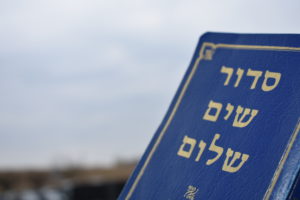Slider photo courtesy of Jared Schultz
March 19 marked the 100th anniversary of the creation of American daylight savings time. Over the course of the past century, millions of Americans have turned their clocks forward in order to enter this adjusted time schedule. Subsequently, millions of Americans have also complained the following morning about the hour of sleep they lost as a consequence. However, others appreciate its arrival, claiming that they enjoy the extra hours of light in the evenings. There are even arguments that can be made in favor of or against daylight savings based on how it conflicts with religious practices. Ultimately, we are left with a simple question: Does daylight savings serve a legitimate purpose in the modern world?

It is often said that Benjamin Franklin was the creator of daylight savings, and this statement is somewhat true. He had woken up early at six in the morning and noticed that the sun had already risen. Upon seeing this, he suggested that people wake up earlier in the morning and go to bed earlier in the evening. In 1784, Franklin wrote a letter to the “Journal of Paris,” proposing his idea. By doing so, people could take advantage of light for a greater portion of the day, thus saving money on candles. Though it did not involve any changes in time, it was the first idea proposing that people’s schedules should be adjusted in order to conserve resources.
The modern daylight savings period was first implemented in Canada in 1908. A small community in Ontario, Canada was the first to turn their clocks forward, and the custom quickly spread across the province of Saskatchewan.
Germany, however, is credited as the first country to implement nationwide daylight savings time. In 1916, resources in Germany were scarce due to the ongoing world war, so the entire country adjusted their clocks in order to conserve fuel which was being used for lighting. The concept of daylight savings quickly spread throughout Europe, and in 1918, the United States created “Fast Time” which set the standard for daylight savings in America today.
After the war, most countries abandoned the practice of daylight savings. America had repealed Fast Time only seven months after it had been enacted, though some cities such as New York and Boston continued to use it. The practice was resumed in 1942 due to America’s entry in the Second World War. During this period, a national daylight savings time was put in place, and the United States was divided into four time zones called Pacific War Time, Central War Time, Mountain War Time, and Eastern War Time. Interestingly, after the United States’ victory was marked by the surrender of Japan in 1945, these time zones were renamed as “Peace Time.”
In 1966, the Uniform Time Act was signed, which naturally, made the practice of daylight savings in the United States less uniform. This act granted the states the power to decide whether or not they would follow daylight savings, as opposed to it being observed on a national scale. Today, almost all of the states in the U.S. exercise daylight savings time.
Back to the question: Does daylight savings serve a valid purpose in the modern world? Before coming to a conclusion, I sat down with HBHA Jewish Studies 6-12 Chair, Michal Cahlon, in order to get her opinion on the matter.
Cahlon says that she prefers to have the sun come up later in the morning. “I get to work very early,” she said, “I’m typically at my desk by 6:30 am. I like seeing the sun rise.” She also stated the additional light in the evening allows her to get more accomplished without sacrificing safety, citing an old Judeo-Arabic saying: ‘“the only thing that goes out at night is birds of prey.”
The conversation took an interesting turn when the topic shifted to how daylight savings could impact the everyday lives of Jews. There was a proposed bill in 2005 to extend daylight savings by about two months, and there were objections by many observant Jews. “They could not start shacharit until later in the day, which makes it difficult to make a minyan because people obviously wish to go to work and have an obligation to support their families,” Cahlon said.

It is important to note that there are also opinions from a Jewish perspective in favor of daylight savings. Seth Goldstein of myjewishlearning.com cites Exodus 12:2, “…this month shall be to you the beginning of months; it shall be the first month of the year to you.” He explains that there is a deeper message telling us to “find significance in the season, and to count the months in a particular order.” He proposes that daylight savings serves as a ritual marking of spring, and by observing it, we are also observing one of G-d’s commandments.
So to answer the question, yes I believe that daylight savings does serve a legitimate purpose in the modern world. In terms of its usefulness, daylight savings no longer serves the purpose of conserving fuel rations or saving money on candles, but that does not mean that we should abandon it. Daylight savings has become less of a necessity and more of an American tradition. And even though an extra hour of sun in the evening may not seem like much, it is still able to, quite literally, lighten up our day.















































































